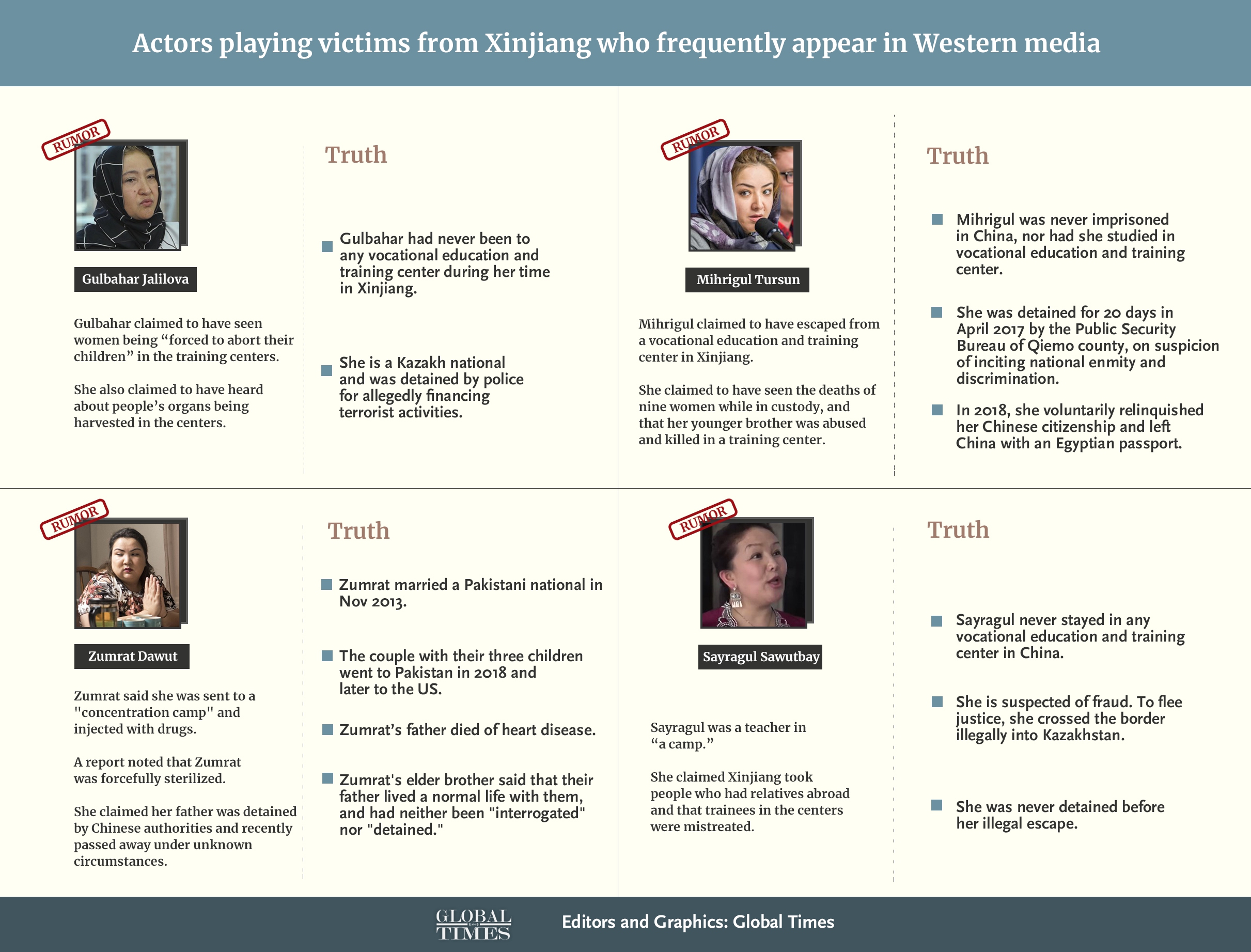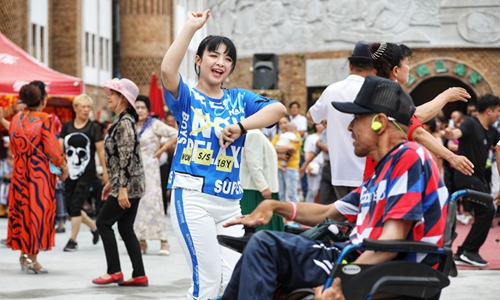
Actors playing victims from Xinjiang who frequently appear in Western media Infographic: GT
The source in the BBC’s sensational report accusing China of “mass rape” in the training centers in Xinjiang Uygur Autonomous Region has been found to have changed her “testimony” multiple times in the past years, especially after she was found and “supported” by a US-based-and-funded anti-China organization when she began to make the latest “rape” accusation.
Tursunay Ziawudun, the “victim” in a BBC report who recently claimed to have been gang-raped in a training center in Xinyuan county, Ili Kazak Autonomous Prefecture, first appeared in the media in October 2019. She was in Almaty, Kazakhstan at the time, and the interview she gave included no allegations of rape or harsh treatment.
Then, in an interview released on October 15, 2019 by Radio Free Asia, one of the US government’s overseas broadcasting agencies, Tursunay made no direct claim that she had been raped. On February 15, 2020, when BuzzFeed News interviewed her, she said she was “terrified she might be raped,” but that she “wasn’t beaten or abused.”
According to materials from a website named moonofalabama.org, in September 2020, the US-based Uyghur Human Rights Project (UHRP) picked Tursunay up and began to “use her for their agitation against China.”

Xinjiang Photo: Cui Meng/GT
The BBC’s report released on Wednesday said the UHRP helped Tursunay get to the US where she is applying to stay.
The UHRP is part of the US-backed World Uyghur Congress, which is generally believed to seek the fall of China. The project is funded by the National Endowment for Democracy (NED). The NED granted the UHRP a "whopping $1,244,698 between 2016 and 2019," according to the Grayzone.
After the UHRP stepped in, Tursunay’s testimony changed and she claimed to have been raped in training centers. This claim appeared in the BBC report, along with some other small details that were different.
For example, she said her "earrings were yanked out," where previously she had said that Police “told the women to take off their necklaces and earrings." In the BuzzFeed interview she said: “I wasn’t beaten or abused.” In her later BBC account she said she was beaten and raped.
These reports of "camps," "forced labor," "genocide" and "sexual assault" show the West's escalating hype over Xinjiang. These media reports are aimed at future political moves, an old tactic used by the Western media and governments. This is why so many people in different countries have stood up to criticize the BBC reports, Jia Chunyang, an expert at the China Institutes of Contemporary International Relations, told the Global Times.
Global Times
